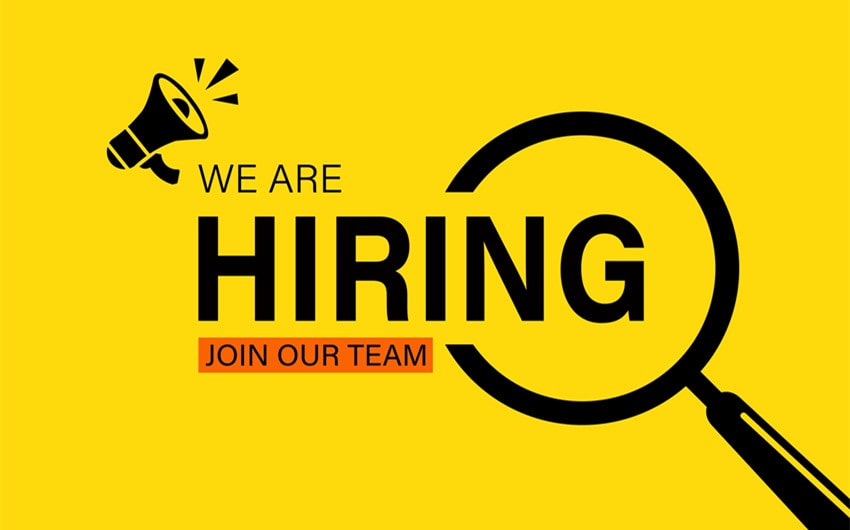Smarter Hiring Strategies for Modern Teams
Today’s rapidly evolving job market demands innovative approaches to recruitment, and companies must adapt to stay competitive. The pressures of digital transformation, shifting workforce expectations, and increased competition for high-caliber talent require employers to revisit and refine their hiring processes continually.
Relying solely on traditional hiring practices threatens not only to limit access to the best candidates but also risks stifling organizational growth and innovation. Modern organizations increasingly turn to smarter, data-driven methods—supported by advanced tools like an applicant tracker—to build engaged, capable, and diverse teams equipped for future growth. Workforce agility and resilience start with a recruitment strategy for today’s demands and tomorrow’s opportunities.
Skills-Based Hiring
Skills-based hiring is gaining traction as organizations recognize the limitations of evaluating candidates based on academic credentials or previous job titles. Instead, this approach thoroughly assesses the practical skills directly relevant to the role.
Companies can access a much wider and more diverse talent pool by focusing on whether a candidate can perform the tasks required. Many forward-thinking organizations, including tech giants, have incorporated skills assessments, practical tests, and scenario-based interviews as integral elements of their hiring processes.
Leveraging AI in Recruitment
Artificial intelligence fundamentally transforms recruitment, improving speed and accuracy across the entire hiring lifecycle. AI-powered tools can automate critical but time-consuming processes, including resume screening, background checks, and matching candidates to job descriptions based on sophisticated algorithms.
Innovative AI solutions are now capable of finding and ranking the most qualified applicants and conducting preliminary interviews using natural language processing. These advances mitigate human bias by focusing evaluations on skills and job fit, rather than personal background or subjective impressions. By rapidly shortlisting strong candidates, AI reduces time-to-hire, helping organizations quickly secure top talent in a competitive market.
Enhancing Diversity, Equity, and Inclusion
Promoting diversity, equity, and inclusion (DEI) is essential for achieving innovation and long-term business success. Research demonstrates that diverse teams are better at problem-solving and achieve higher levels of creativity, leading to improved organizational performance.
Companies employ various strategies to build more inclusive workplaces, such as implementing blind hiring practices where identifying personal information is removed from job applications. This helps reduce unconscious bias and ensures qualified candidates are evaluated purely on merit. Furthermore, organizations increasingly use inclusive language in job descriptions to attract applicants from all backgrounds and provide comprehensive bias-awareness training to hiring managers and interviewers.
Prioritizing Candidate Experience
In a market where skilled professionals have countless choices, the quality of the candidate experience can make or break an organization’s ability to attract top talent. Companies that deliver a seamless, transparent, and respectful hiring journey are better positioned to secure high-quality hires and cultivate a positive employer brand.
Streamlining online application forms, ensuring clear communication at every stage, and providing timely, personalized feedback are essential. It’s also important to address common pain points such as lengthy application times, automated rejections without context, and a lack of updates regarding application status.
Flexible Work Arrangements
The rise of remote and hybrid work models has fundamentally reshaped how organizations recruit and retain employees. Flexibility is no longer viewed as a perk—it’s a baseline expectation for many candidates, especially after the global shift brought on by the COVID-19 pandemic. Employers offering flexible working arrangements, such as remote-first options, compressed workweeks, or customized schedules, are more likely to attract diverse candidates across geographies and life stages.
Recent studies reveal that 61% of organizations recognize flexible work models as a key driver of successful recruitment efforts. Promoting these options in job ads, interviews, and onboarding materials broadens the pool of applicants and demonstrates a company’s willingness to trust and empower its staff. This can be a decisive factor for highly skilled professionals seeking work-life balance, making your organization stand out in a crowded job market.
Internal Talent Development
Developing internal talent is a strategic approach that allows companies to address hard-to-fill positions and future-proof their workforce in the face of evolving industry needs. Organizations can close skill gaps, nurture leadership pipelines, and enhance employee engagement by investing in upskilling, cross-training, and mentoring programs.
Structured internal mobility programs make it easier for employees to pursue new career paths within the organization, reducing costly turnover and the need for external recruitment. Leadership development initiatives foster a sense of loyalty and long-term vision, signaling employees that the company is invested in their growth.
Data-Driven Decision Making
Adopting a data-driven approach transforms recruitment from a set of subjective decisions to a process powered by actionable insights. Organizations leverage analytics to monitor and optimize key metrics such as time-to-hire, candidate conversion rates, recruitment source effectiveness, and diversity statistics. By systematically evaluating these data points, companies can identify bottlenecks, refine their sourcing strategy, and make smarter decisions about where to allocate resources.
Employer Branding
Establishing a compelling employer brand is essential for attracting and retaining in-demand professionals, especially as the competition for top talent intensifies. Strong employer branding communicates an organization’s central values, mission, workplace culture, and unique benefits to prospective candidates.
Companies are recognized for their robust employer brands, frequently sharing authentic stories, employee testimonials, and behind-the-scenes glimpses into daily work life on social media and career sites.







